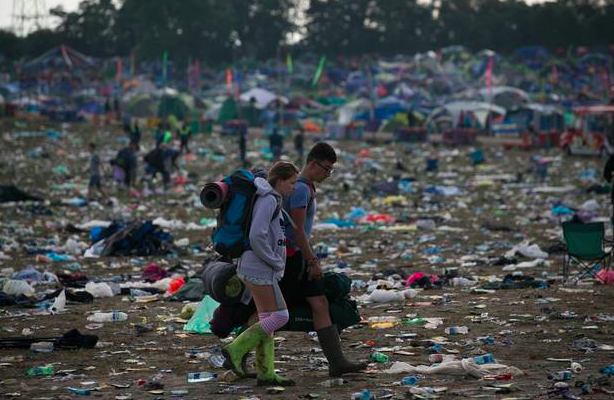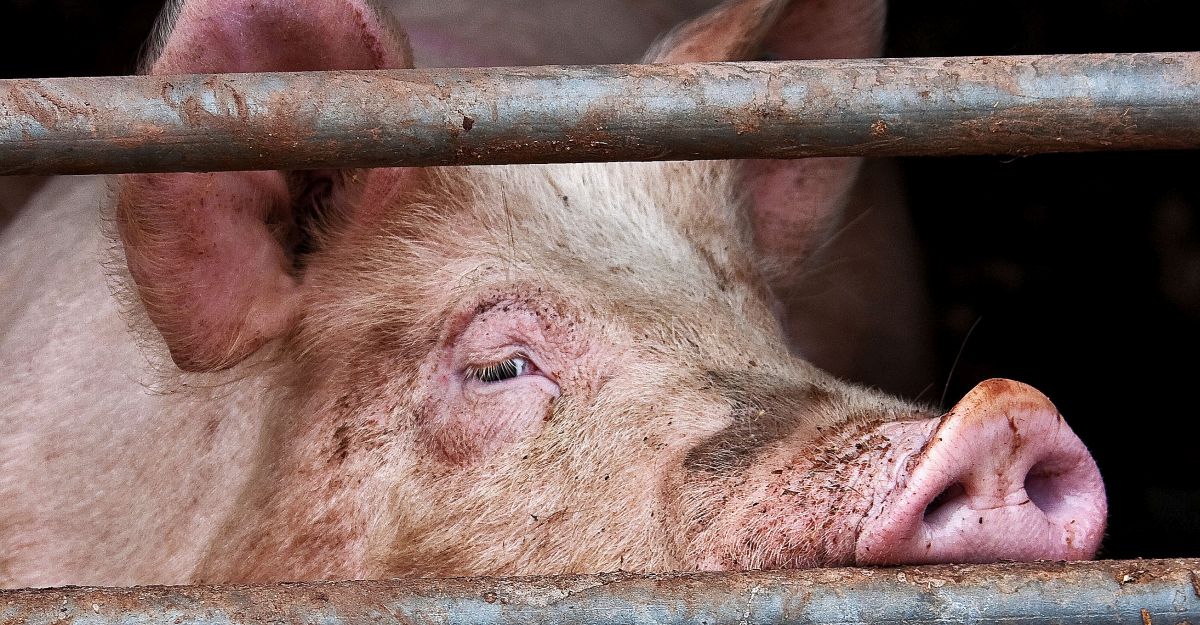Outdoor music festivals are big industry in Australia. Woodford Folk Festival, for example, drew over 120,000 people last year for their annual 4-day event, which won the 2014 Australian Tourism Award for Major Festivals and Events – an award that considers factors such as economic impact and travel tourism. To put this in perspective, the Melbourne Cup was third runner-up.
As an attendee amongst all this phantasmagoria, it’s difficult to picture the artifice and infrastructure that must go into creating such an atmosphere. The amount of people drawn to these festivals is immense and the impact on the local environment can be very destructive if not managed well. Large numbers of people can trample plants and erode the soil, leave litter and old food, encroach on animal nests and burrows, as well as cause noise and air pollution.
The bush setting, for many festivals, is meant to be a celebration of human interaction with nature, so waste management and environmentally conscious operations are very important, both to the local area and to the attendees.
Of course, some festivals do better than others. The well-known ‘bush doof’ festivals Earthcore and Maitreya, were criticised by reviewers recently for having trash-filled sites and participants who showed a general lack of environmental respect. Similarly, Rainbow Serpent Festival’s 2014 Rubbish Report tallied almost a third more rubbish per person left behind on their festival site than the previous year. There is a growing conversation about these issues within the festival community, and in Australia there has been a good response from many events themselves, who publish year-by-year updates on their environmental impact and have been working hard on new sustainability programs.
This growing conversation highlights the fact that the world over, more and more people are becoming aware of their own environmental impact. With this awareness, we are seeing more people give preference to businesses and events that foreground environmentally friendly programs and accreditations. Madeleine Radke, sustainability and waste management guru, who works with festivals such as Rainbow Serpent, Earth Frequency and Woodford Folk Festival argues that:
One of the most important things an event can do to show their commitment to reducing impact is to appoint a person whose whole sole job it is to monitor these things. There’s no way that you can improve if you don’t know what there is to improve upon. I work with cultural design. This is an approach to our work where, instead of just coming along and cleaning up after people, we try to proactively influence their behaviour using arts, good communication, education and an appropriate amount of hugs.
Outdoor festivals have the power of arts and music to create a number of fascinating ways to communicate with participants. One example of this is the roaming performance troupe called the Order of the Rubbish. These strange people in green robes roam across festival campsites singing and chanting about keeping the campsite clean, usually with a number of bemused punters trailing behind them. This arts-based recycling initiative keeps participants aware of festival standards in a socially inclusive way.
‘What I find interesting about the power of our social norms is that it really depends on the quality of our relationship with the group or the individual that’s asking us to do something,’ says Radke. ‘We like to do fun things like sculptures that collect cans – we have a Canaconda, Volcan-no, Canasaurus. We also have disco bins! Rule one for us is that you can’t expect someone to do something for you, unless you’ve actually asked them nicely.’
Using sculptures and music to educate people also helps to distance the idea of rubbish being ‘icky’ or something that someone else has to deal with, rather than a problem we should all help with – and even helps to make it socially advantageous to be seen helping out at the festival.
There are also a number of ‘hidden in plain sight’ methods where the aim is to encourage people to take personal responsibility for making sure that the atmosphere is happy and healthy for everyone. A simple but effective example of this is the appointment of plainclothes staff to pick up rubbish from the ground.
‘This is based on emphasising a shared identity between the patrons and those cleaning up,’ says Radke, who works at several events that institute a ‘no uniforms’ rule. ‘My least favourite waste management jobs are ones with uniforms – patrons assume that ‘someone else is getting paid’ to clean up, and therefore are willing to trash the joint.’
Radke’s work with these communication-based initiatives has worked well with smaller groups of people, but these methods can also be swamped by larger events.
For a festival as large as Woodford Folk Festival, which has over 120,000 people every year, the best solution for managing the waste of so many people was to buy a permanent site and build the infrastructure up from scratch. The folk festival has been running for 27 years at its current site, and has installed its own sewerage plant and composting facility. Aside from this infrastructure and the office building, there are no permanent buildings onsite, allowing the area to be used for natural habitat.
‘Everything is brought onsite, built and then taken away again,’ says Gerry Dacy, who has been with Woodford Folk Festival since it started over thirty years ago. ‘The program starts in November and by the end of January there’s nothing, it’s bare. And the wallabies and kangaroos move back in, and it’s back to nature … we’ve made such great leaps forward, especially in terms of redeveloping the vegetation. When we bought it, the land had been farmed for generations. Since then we’ve landscaped it and planted a couple of hundred thousand indigenous trees on the property, indigenous trees to the area, and now you can’t even see the terraces where people camp. It has all been properly reforested.’
Over the past thirty years, the team at Woodford have put an amazing amount of work into adapting the old dairy farm into a thriving site filled with native plants and animals. Each year the festival has approximately 5000 volunteers. The project has been constantly evolving, and there has been a lot of trial and error, but their work has set the bar for all other festivals that have grown up in its wake. These days, the Woodford festival site handles two months of intense human activity each year, but is able to remain a healthy, natural habitat for the rest of the year. A habitat that would never have existed otherwise.
With this sort of work, outdoor festivals are able to provide a feedback loop where festivals are encouraged by a growing interest in sustainability to appoint dedicated environmental programs, which in turn encourages a not inconsiderable number of festival-goers to get involved on an individual level. These programs and methods are a wonderful example of the type of work that we need to do in order to raise not just awareness for sustainability, but a sense of personal responsibility.






